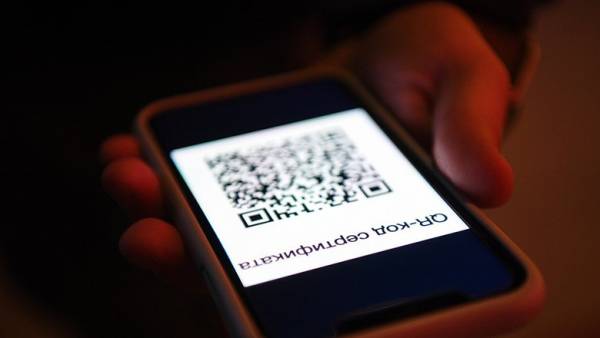
The Parliament of North Ossetia has not & nbsp; approved a federal bill on & nbsp; the introduction of QR codes in & nbsp; public places. This is reported by the local portal Osnova.
For voted 30 deputies, “ against '' & nbsp; & mdash; 12. There are 69 people in & nbsp; parliament.
The government submitted two bills to the State Duma on November 12 & nbsp; One of them involves amending the & nbsp; federal law “ On & nbsp; Sanitary and Epidemiological Welfare of the Population. '' If the document is accepted, the presence of a QR code on February 1 & nbsp; 1 & nbsp; will become a prerequisite for visiting public places, with the & nbsp; exception of pharmacies, grocery stores and & nbsp; convenience stores. The measures will be valid until June 1 & nbsp; & nbsp; June 1, 2022.
The second bill concerns the use of QR codes in & nbsp; trains and & nbsp; aircraft.
The State Duma Council sent two bills for & nbsp; discussion in & nbsp; regions until & nbsp; 14 & nbsp; December inclusive. Having received feedback from local legislative assemblies, as well as the Public Chamber, the Accounts Chamber and the Federation Council, the State Duma will begin to prepare the document for the first reading. According to RBC sources in the & nbsp; lower chamber, both documents will be considered in the & nbsp; first reading in & nbsp; December.
North Ossetia has become the first and so far the only region to oppose the bill on QR codes in public places.
Federal initiative & nbsp; ; have already supported the parliaments of Bashkiria, Tatarstan, Udmurtia, Ingushetia, Magadan, Novosibirsk, Moscow, Orenburg, Ryazan, Rostov, Bryansk, Nizhny Novgorod regions, Perm Territory.
Opponents of QR codes tried to break into the Legislative Assembly of Chelyabinsk areas where bills were discussed. The police arrived at the & nbsp; place, but & nbsp; by the & nbsp; moment of their & nbsp; arrival, the situation was calm, no one was & nbsp; detained.
A Superjob poll showed that & nbsp; 68% of Russians are against using QR codes in & nbsp; principle. 15% of respondents supported the introduction of QR codes in & nbsp; transport, 14% & nbsp; & mdash; in & nbsp; transport and & nbsp; shops.